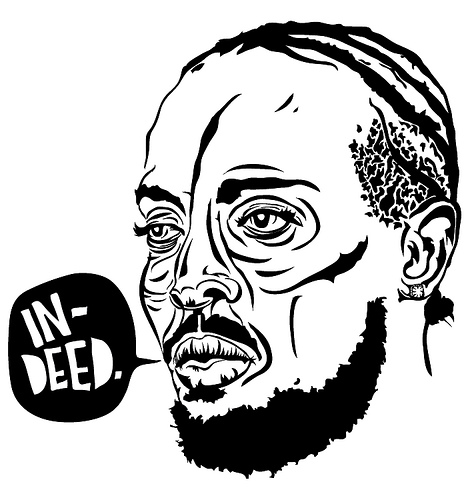The following appeared in The Peak on January 11, 2010 and is a response to a piece by Jonathon Van Maren, also in The Peak on January 4, 2010. It is only being posted now because, you know, I had things to do. Get off my back, you’re not my mom (unless you are, in which case, hello mom).
We should feel grateful, I think, that Jonathon Van Maren stopped short of waving his cane at us, telling us to get off his lawn and read a book, in his editorial about the evils of television [TV is turning us into idiots, January 4].
From the beginning, Mr. Van Maren co-opts the rhetoric levied against every new medium of storytelling since (presumably) shadow puppets on cave walls. Film, comic books, radio, television and video games have all been targets of similar complaints in turn, but Van Maren chose to focus on the perennial favorite: TV.
Van Maren’s insulting tone aside, he places television at the forefront of social decline. But, like any medium that has received this treatment, this is scapegoating at it’s finest. If anything, social decline is at the forefront of the decline of television (which Battlestar Galactica and The Sopranos may even refute).
But let’s assume his is talking about content versus a waning medium, and, as the Spice Girls have taught us, that popularity does not always equal value. He goes on to state explicitly that “television shows seem incapable of discussing anything but sex and violenceâ€, and in the same breath points to the virtues of literature as a more worthy sink for our time.
I feel the need to point out that, as some of the defining issues of the human condition, these and other themes heavily featured in television are just as prevalent in literature. To ignore them is juvenile and to say that all television is singularly fixated on bayoneting opposing armies and then raping their widows is disingenuous at best. Sesame Street has hardly any intercourse at all, especially since Bert and Ernie broke up. I also feel the need to point out that for every terrible reality TV show, there is a literary equivalent spilling from the pen of Dan Brown, and the like.
Van Maren throws the word “Yale†around like a nightstick, in an attempt to lend his article a little pop-psych credence. He invokes a Jerome Singer (the Yalie in question) that was published over 25 years ago to illustrate how kids will emulate television characters. Ignoring the tempering effect of decent parenting, a kid stabbing a classmate because he watched NYPD Blue is clearly displaying symptoms of some larger problem. In an attempt to bring in readers other than the Helen Lovejoys of the world, Van Maren then brings the falling global fitness level into his argument; he attempts to portray TV as the cause of obesity, as opposed to just eating too goddamned much. This offends me as a fat person.
My complaint, however, is not confied to quibbles with his evidence. There are much larger problems in the broad strokes he uses to paint the medium. He admits that cinematography and literature are two separate mediums, but then proceeds to evaluate them with the same metric. In an article about the degenerative effects of television, he fails to mention a single television show by name, let alone their deficiencies. In fact, he spends more time talking about television journalism than anything, which I would argue is another medium altogether.
Van Maren wrote the article like he had only read about television on the internet. He writes like he had never seen classics like M*A*S*H and St. Elsewhere, nor the modern masterpieces like The Wire and Six Feet Under. He wrote like he’s never seen the work of the master writers like Sorkin or Mamet. He wrote like he never cared whether Joey and Pacey were dating, let alone like he knows who the hell Dawson is and why he owns a creek. The value is there, if you seek it, just as it is in books.
Television is the logical progression of theater media, and we can learn just as much about ourselves from Twin Peaks as we can from Beckett. To pin it as the source of modern human idiocy is as narrow as it is ridiculous.
